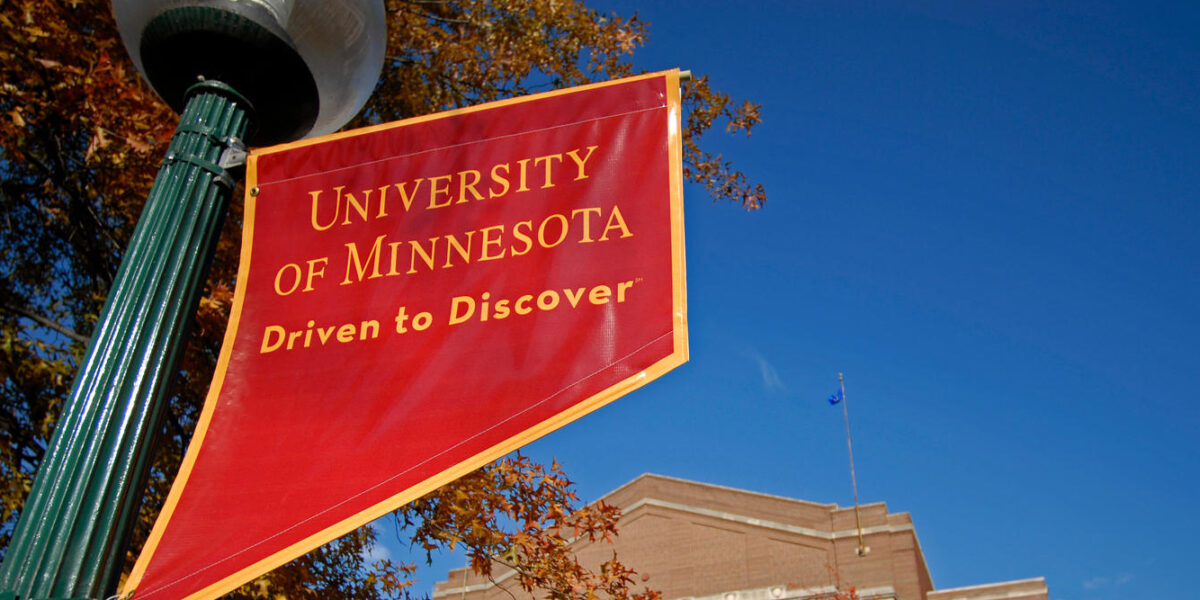This week on Minnesota Native News, we hear from Karen Diver, who has a new role. She is the inaugural appointment of a new and unique senior-level tribal affairs position at the University of Minnesota. Plus, an update on the Line 3 pipeline replacement project has sparked protest in northern Minnesota. Here’s reporter Cole Premo.
In early May, University of Minnesota President Joan Gabel announced that Karen Diver will be the institution’s new Senior Advisor to the President for Native American Affairs. Diver spoke with Minnesota Native News on the new role.
“It’s a cabinet-level position working directly with the president and senior level team. And this is to work on diversity, equity and inclusion efforts, but specifically around Native American learners, communities and tribal governments.” said Diver.
In the announcement, President Gabel called Diver an “accomplished leader with broad experience.” Diver most recently served as the Native American Advancement Initiative’s Business Development Director at the University of Arizona. Prior to that, she worked at the College of St. Scholastica in Duluth as the inaugural Faculty Fellow for Inclusive Excellence for Native American Affairs.
Additionally, Diver was appointed by President Barack Obama to be a Special Assistant to the President on Native American Affairs, a job she held from 2015 to 2017. Prior to that she served as Chairwoman of the Fond du Lac Band of Lake Superior Chippewa.
Diver says she’s absolutely delighted to join the University of Minnesota as Senior Advisor to the President for Native American Affairs.
“Higher education is a big institution and tribal government and indigenous people are underrepresented at all levels, whether they are learners, faculty or needs of tribal governments around workforce development… so if I could be part of this system, I will consider that a great ability to be in public service,” she said.
When asked about some immediate goals, here’s what Karen Diver had to say.
“I know that President Gabel has prioritized working with tribal governments and listening to their issues and/or concerns, so I’ll be assisting her with that. I’m particularly interested in seeing what the needs of tribal governments are, whether it’s health care, education or whatever disciplines that they need to build healthier communities.”
On May 28, Diver assumed the role at the University and says she’s hopeful President Gabel and her team can acknowledge the school’s past with tribes, while simultaneously meeting their current day research and workforce needs.
Next, an update on the Line 3 pipeline replacement project that has sparked protests in northern Minnesota.
Recently, the Minnesota Court of Appeals affirmed state regulators’ key approvals of Enbridge Energy’s Line 3 oil pipeline replacement project.
In a 2-1 ruling, the three-judge panel found that the state’s Public Utilities Commission correctly granted Enbridge a certificate of need and a route permit. Those approvals were needed for the canadian company to begin construction on the Minnesota segment of the pipeline, which spans over 300 miles.
The judge who dissented said that the pipeline will not benefit Minnesota, and will have negative consequences on the rights of Red Lake and White Earth tribes. The two judges who voted in favor said the decision was needed considering the deteriorating state of the existing pipeline, but also acknowledged that it will have an impact on rights of indigenous people.
Opponents to the pipeline, which include tribal and climate change groups, vow to continue resistance to the pipeline and are considering an appeal to the Minnesota Supreme Court. They are also appealing to President Joe Biden to intervene and stop construction of the pipeline.
Subscribe to A Mile in My Moccasins



 Briand Morrison’s Gift for Combining Jazz Guitar and Anishinaabe Heritage
Briand Morrison’s Gift for Combining Jazz Guitar and Anishinaabe Heritage